STREAM Activity: Straw Maze
Can you find your way through the maze?
Activity best for children ages 2 and up
Solving puzzles and navigation can be a lot of fun, but did you know that one of the oldest forms of a “navigation puzzle” to exist is a maze? Mazes have existed for centuries, which is a very, very long time! One of the first-ever recorded mazes came from Egypt. Mazes would be created as a game to win a prize or sometimes even to confuse an enemy who wounded up on their territory. They had different purposes for mazes and over time it has evolved into the fun things we like to solve today whether it be a maze in a book or a leafy-hedge maze in a pumpkin patch. Using our creativity and problem-solving skills, today we will create our very own maze out of straw!
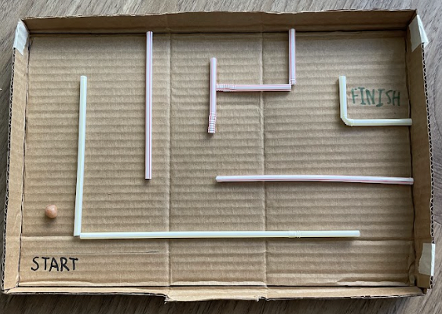
Materials:
Cardboard/shoe box lid
Scissors
Tape
Glue
Straws
Ruler
Writing/coloring materials
Small ball/marble/rolling rock
Guiding Questions:
Is it easy for you to navigate or follow directions?
Have you ever seen or followed a map?
Directions
Step 1
If you do not have a shoe box lid to use for the base of the maze, you can make your own by following these simple steps.
Start by measuring one inch from the bottom of each side of the piece of cardboard, then draw a line all the way across. Repeat this for all four sides of the cardboard.
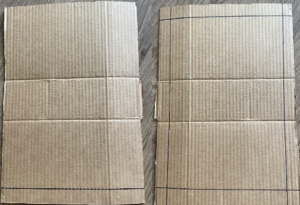
Step 2
Make one cut on each corner of the cardboard. Don’t cut it off! Make sure it looks the same on the opposite side. These flaps will be used to keep the base together.
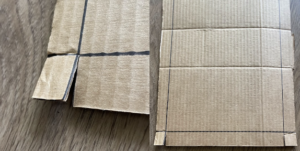
Step 3
After making the cuts, follow the lines you previously marked and fold it downwards. Repeat this for all sides.
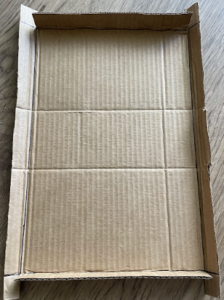
Step 4
Fold the flaps over one another and tape them together. Repeat for all four corners to finish the base.
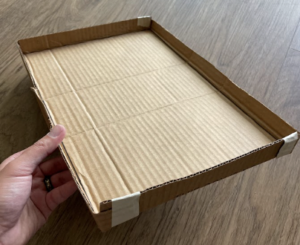
Step 5
Create your starting point and start mapping out our maze. You can use a pencil to draw your paths before you begin gluing down the straw walls.
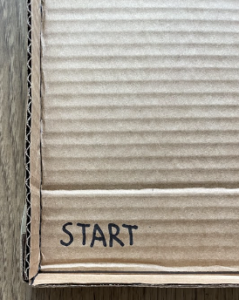
Step 6
Using regular glue, glue down your straws on the pathways you mapped out. You can also cut the straws into different lengths if you need shorter walls.
Some mazes in the past were designed with “dead ends”, which was a certain path was blocked. You can also incorporate several blocked off paths to make your maze more challenging.
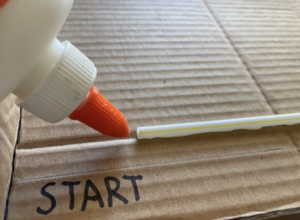
Step 7
Let the glue dry for about 30 minutes before you try testing it. Once it is all dry, you can test it out with a marble or small rolling rock to try to find your way out of the maze!
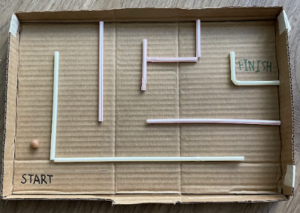
Grown Ups-Are you looking for more ways to extend your child’s learning? Check out these extension activities to build upon today’s STREAM activity!
Reading Connections
“Iggy Peck Architect” by Andrea Beaty
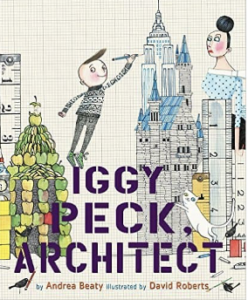
Real World Connections
Architecture is the science and art of designing buildings. This has existed for many years and has changed a lot over time. Mazes in the past have evolved to what they are now, which is the fun, enjoyable mazes we usually see in books or do with our families. Architecture we see nowadays may look different from what it would look like in the future and is always constantly evolving!
Share your Straw Maze with us on Instagram by tagging @sdcdm320!
Questions about this activity? Email education@sdcdm.org

